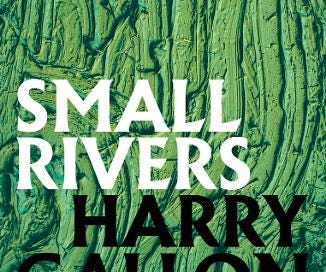Themes: English countryside, nativism, rural decline, Brexit, returning home
Read this if: You call your parents by their first names.
Don’t read this if: You’re not a fan of pastoral settings, and descriptions of farm labour.
If you were to open up a dusty box of books in your family's basement, odds are that lying at the bottom would be a small paperback with yellowing pages, miniscule font and the name Thomas Hardy printed on the spine (not the actor). If you’re American, your parents were most likely forced to read his books in school, if you’re British, then there’s a good chance you yourself were forced to read his books in school. To be frank, most people don’t enjoy Hardy’s books because teachers foisted the books on them, and the plots are incredibly depressing.
What gets lost in all the hate is how revolutionary his books were. The heroes of his story are the everyday people struggling (unsuccessfully) to overcome their social circumstances, and the machinations of fate. He pioneered this movement of Social Realism in the English speaking world, by shining a light on the struggles of the working class, specifically the rural inhabitants of his native South West England.
All this Hardy history is to set up a particular point. Intentionally or not (and I have to assume intentionally), Harry Gallon’s Small Rivers exists in a direct lineage from Thomas Hardy. Gallon has chosen to revisit Hardy’s same South Western English countryside, to shine a light on the tragic social constraints which are suffocating its inhabitants in the present day. The more things change, the more they stay the same.
Hardy lived during a period of profound social upheaval. The industrial revolution was transforming England; colonies abroad and thriving factory cities at home had captured the national imagination. Rural communities were out of sight, out of mind, in other words they were ‘left behind’. If this sounds familiar it’s because it is. History doesn’t repeat, but it definitely rhymes. Fast forward 150 years and it’s not another industrial revolution, but it is an information revolution. The urban-rural divide has never been starker, and feelings of being marginalised abound. In Britain, it all came to a head on 23 June, 2016, when Britain voted to leave the EU. This was in no small part thanks to Hardy’s muses, the rural inhabitants of South West England, who voted overwhelmingly to leave.
A dying farm community, a vanishing way of life, and the social schism caused by Brexit form the backdrop for Gallon’s tragic novel. Toby and Angelica are returning to visit their father Frank’s farm for Christmas, and the situation is bleak. Their father has grown older, the business worse. To cope he has brought on a Polish worker, Jerzy, to help out. Things are made worse by the malignant presence of an ex-farmhand, Damien, fired for stealing, but convinced he’s been replaced by migrant workers. All the characters are enduring the struggle to overcome the constraints of a social environment they can’t change, and carve out a life for themselves in a land left behind:
“The hollow. The valley curving off to the right where the high tree line cloaked the dead-end road that led to the village a few miles away, enveloped the crest of each hill and encircled the farm with a protective wall and moat of moon-scape ditches forever filling with rotten branches, filth and foliage. Badger setts and rabbit runs. Owl pellets and drowning worms. A cold oasis dug out of the chalk in a landscape centuries old. Bought, sold, bartered, stolen, inherited and passed down. Forced upon. Toiled over. Bled into and pissed on. The soil as stinking and banal as it was, bubbling with threat and spent shotgun cartridges. This was something Toby had rarely felt. Looking down from the top of the hill and the top of the embankment that dithered towards the Down. Higher still. He felt something bubbling over. Inside him and below the surface of the field, swelling the flint pit and track and the mud in the yard, engulfing the gutters that drained the farm and the gutters that washed the village somewhere past the opposite tree line, further still out of the North Wessex Downs and over the A303, Salisbury Plain and the New Forest.
Toby Nodded”
Thomas Hardy connections aside, I thought that Small Rivers was a genuinely good read. The writing is superb, although some people may not appreciate the passages detailing agriculture technique. The content is a great snapshot of individuals trying to live decent lives in a community collapsing under the intense pressures caused by social stagnation. I think Thomas Hardy would be sad to see that the lives of his subjects are still a struggle, but pleased that writers continue to find inspiration in the people and land he loved.


